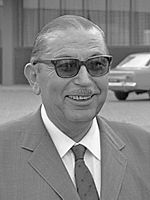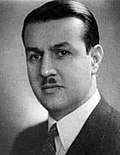| Chairman of the Senate of the Republic | |
|---|---|
| Cumhuriyet Senatosu Başkanı | |
İhsan Sabri Çağlayangil, last President of the Senate of the Republic | |
| Appointer | Senate of the Republic |
| Formation | 26 October 1961 |
| First holder | Suat Hayri Ürgüplü |
| Final holder | İhsan Sabri Çağlayangil |
| Abolished | 12 September 1980 |
This article lists the chairmen of the Senate of Turkey , which existed as an upper house of the Turkish parliament between 1961 and 1980.




